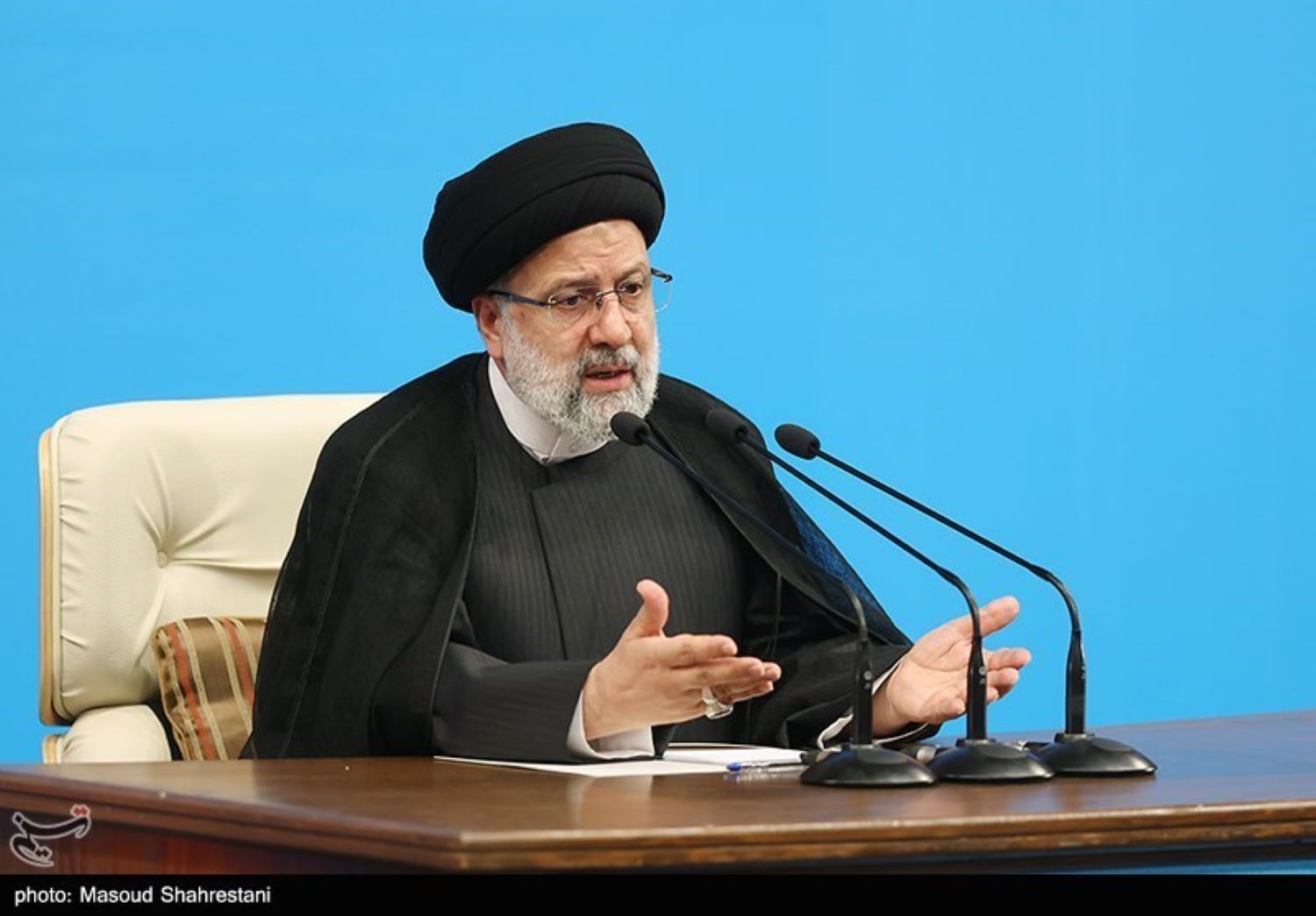TEHRAN, IRAN – Iran President Ebrahim Raisi on Tuesday said that the country’s money is only blocked in South Korea and that all other foreign assets are at the Central Bank of Iran’s disposal.
“We have already made it clear that the only blocked money was in South Korea. In other places, (the Iranian financial resources) are at the Central Bank’s disposal and we don’t have what may be interpreted as frozen money in other countries. The Central Bank (of Iran) has control of the assets in the other countries,” Raisi said at a press conference on Tuesday.
He said that while Iran has forged strong relations with Islamic and like-minded countries, its enemies are also knocking on the door after initially trying to ditch the country when riots broke out following the death of a young woman in September 2022, Tasnim news agency reported.
“The enemy tried to follow two strategies of isolating Iran in the world and disappointing the people inside, which it failed in both. That is because we follow numerous agendas in our foreign policy all at the same time, one of which is the Joint Comprehensive Plan of Action (JCPOA),” the president said, referring to the 2015 nuclear deal.
“We’ve improved relations with neighboring countries as well as Islamic and aligned states and improved the level of political, economic and commercial relations where commercial ties have grown 14 percent compared to the previous government,” Raisi said, Press TV reported.
“In the area of regional trade ties and business measures which some believed little can be done, the government broke the record and it turned out that there are many capacities in the country,” he said.
“Relations with Latin America, Africa and many Asian countries have improved,” he added.
“Becoming active in the Eurasian Economic Union and membership in the Shanghai Cooperation Organization and recently in BRICS all show that… the enemy did not succeed in its policy to isolate Islamic Iran and our political, commercial and economic situation shows the failure of the enemy in this strategy,” Raisi said.
Raisi also touched on the enemies’ project to disappoint the Iranian people.
“Not a few months had passed when a nationwide cyber-attack was launched on gas stations,” he said.
“Throughout the country, they tried to anger the people by creating problems, but the people carried on vigilantly and with insight and disappointed the enemy.”
When the enemy realized that the people are with the government and the country is progressing, it turned to stoking unrest, the president said.
“It thought that it could follow through with agitation. Even the Westerners left the negotiation table and pinned their hope on riots,” he said.
“They thought that they could achieve their goals in riots, but the people let them down, after which, they immediately messaged that they wanted to go back to the negotiating table and start negotiations,” Raisi said.
“Today is the day when Islamic Iran is known as an advanced and technological country,” he said. “All indicators show growth, effort and progress.”
Apart from pushing the envelope on the removal of sanctions through reviving the nuclear agreement, the president said, the Islamic Republic is keen to push for Iran’s membership in regional and extra-regional alliances, such as the Shanghai Cooperation Organization (SCO).
“Alliances like the Shanghai Cooperation Organization and BRICS are definitely effective against the US unilateralism,” the president said.
“The connection with the Shanghai infrastructure is important for us,” he said.
Along with SCO members, Iran can be influential with its high capacities, President Raisi said.
“This influence is a two-way street, so we will take the necessary measures and not wait for them (the West) to make a decision for us,” he added.

